Meet the Director of Domestic Programs and RCP Research, Dr. Mindy Lull
This January, Dr. Mindy Lull joined Global Volunteers as the Director of Domestic Programs and RCP Research. She brings a wealth of experience and expertise to our team that will enhance our ability to achieve our goal to help children reach their full potential. As the Director of Domestic Programs, Mindy will be responsible for overseeing the management and development of domestic operations, ensuring that we continue to provide the highest quality of service to our host communities in the US. Similarly, as the Director of RCP Research, she will be responsible for leading and conducting the research associated with the Reaching Children’s Potential program. Read on to learn more about Mindy’s long and fruitful journey with Global Volunteers as she shares her thoughts on the future and the challenges of her new roles.
Can you tell me about your academic and professional background?
I have a B.A. in Anthropology from St. John Fisher University and a Ph.D. in Pharmacology from Penn State University. I also did a post-doctoral fellowship in Anatomy and Neurobiology at Virginia Commonwealth University before earning my first academic appointment at St. John Fisher University in the Wegmans School of Pharmacy. I started my career there as an Assistant Professor, working my way up to Associate Professor before leaving to come work at Global Volunteers.
When did you first become involved with Global Volunteers, and in what capacities?
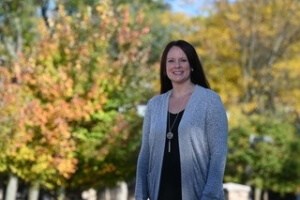
I traveled to Montana on my first service program with Global Volunteers in 2014. I traveled with a group of pharmacy students and knew that I wanted to return every year. I continued to take groups of students to Montana, and then in 2016 was asked to join the Reaching Children’s Potential Advisory Committee as part of a sabbatical project. I continued to increase my involvement after that, traveling to Tanzania and Peru, becoming a Volunteer Team Leader, chairing the Ipalamwa General Clinic Advisory Committee, and then joining the Board of Directors and serving as chair of the RCP Advisory Committee.
Why did you decide you wanted to be employed by Global Volunteers?
I have greatly enjoyed my time volunteering in different capacities with Global Volunteers. I have particularly enjoyed conducting the research for the Reaching Children’s Potential program. So, when the opportunity arose to do that research as a staff member while also helping to run the US service programs, it was hard to turn down. In many ways, it feels like the coming together of my passion for learning, research, service, and anthropology.
Can you tell me a story about a service program you have led, and the impact volunteers had on the community?
There are so many! My favorite times are when volunteers have that “aha” moment that it’s not all about how much they do individually or what their team does that week. It is about the continuous relationship of volunteers all summer or for many years that makes a change. Similarly, they come to realize that relationship building is also more important than any one project. It happens on almost every service program, but it always makes my week!
“Mindy Lull is an extraordinary group leader and I feel very fortunate to have been able to serve with her, especially since the project did not go as planned. Her connection with her students is amazing, and her ability to transition from a college professor to an English Teacher of 10-year-olds, without any warning was a wonderful example for all. She kept her team of students engaged and happy.”
– Karen Wark, Team Leader who served with Mindy in Peru in 2022
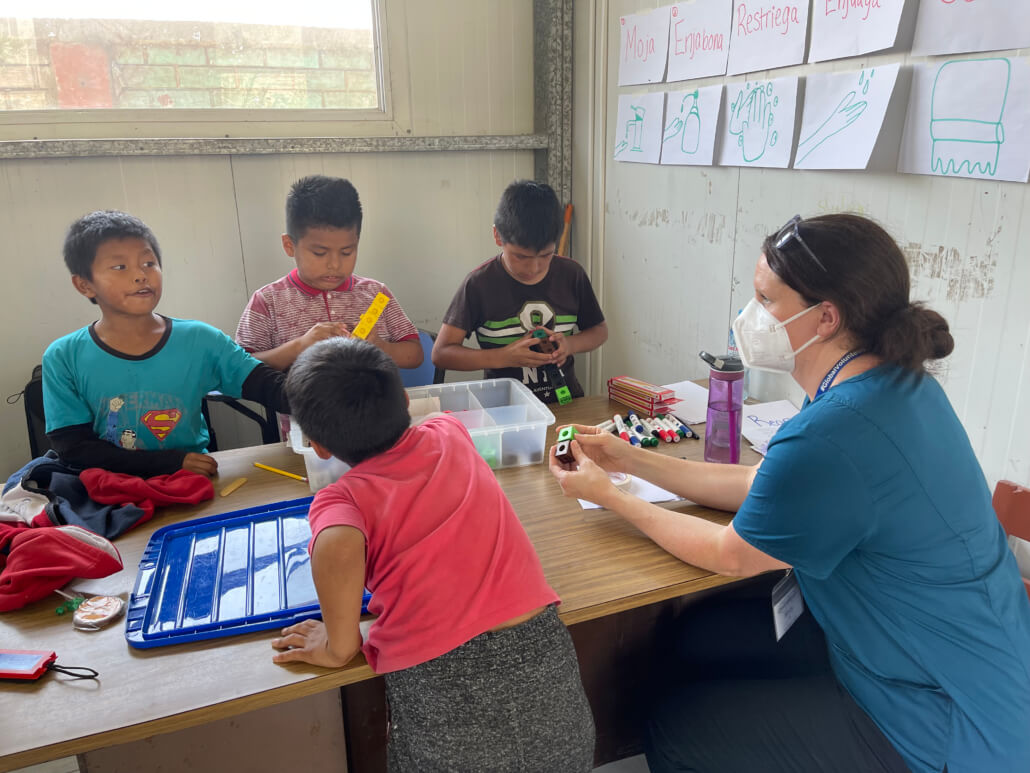
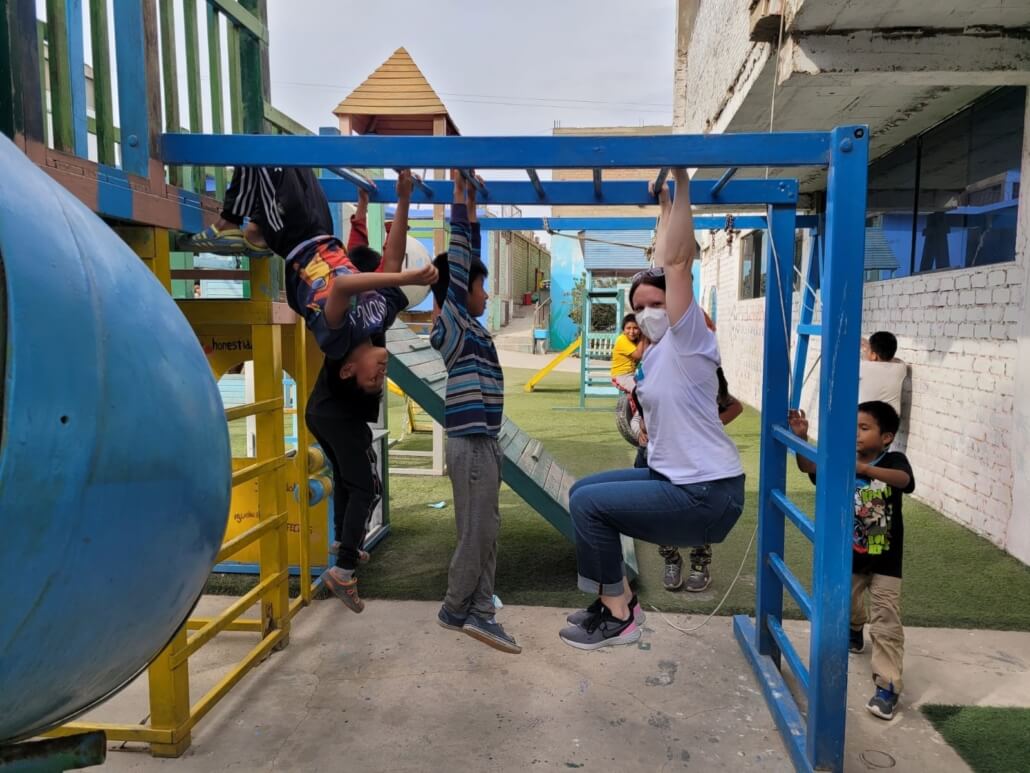
Can you discuss your experience with research, specifically regarding the RCP program?
Human stories and experiences are important in the work of Global Volunteers, but it is essential that they can also be measured in addition to seeing and feeling impacts. That is my role. When I first started helping with research in the RCP program, the focus was on “what should we measure?” and “how can we best quantify success?”. We started with the most basic of measurements – how well are children growing, and is their growth better if they are part of the RCP program? We have now expanded that to include learning more about the challenges, successes, and daily lives of the families, how these factors change for families that are part of the RCP program, and how improving the lives of families helps the growth of children.
How do you plan to continue to learn and stay informed about current best practices in the field of RCP research?
Staying current with our methods and knowledge base is essential for the success of the RCP program. New studies can improve our understanding of child growth and development, teach us new methods of gathering or utilizing data, and identify new programs we should implement or partnerships we should pursue. Part of my weekly routine is checking the literature for recent publications related to stunting, childhood growth, and nutrition. It is also great to be in the company of researchers and organizations doing similar work, so I plan to travel to different conferences and forums in the field to both present our findings and learn the latest findings from others.
How do you plan to involve and benefit the community with your RCP research?
While sharing the results of our research with the scientific and development communities is vital for funding and replication of findings, it is also essential to share results with the communities we are working with. Parents want to know that the effort they are putting in is working; that their children will have better outcomes in life because of their decision to join the RCP program. Similarly, our community partners want to see the results of their invitation for us to come. Some of the biggest benefits of the research, however, are in its publication. This is what will enable us to increase our funding to offer more services and expand to more communities.
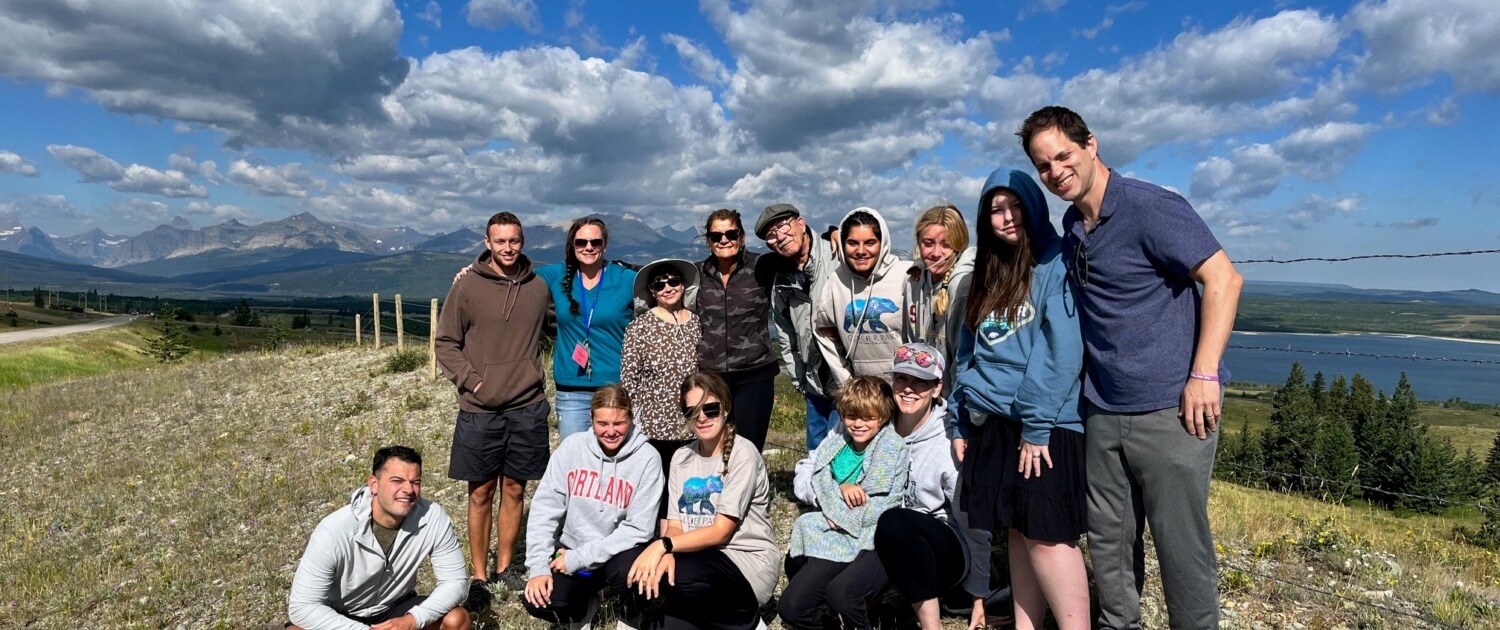
What are the plans and goals for future RCP research?
The RCP team has already been discussing the lessons learned over the past five years, and how we take those lessons and make the research more rigorous, complete, and meaningful. With the addition of the Mental Wellness Initiative in Tanzania, and collaborations with Dr. Shelley Haddock, it is also exciting to expand our scope. It is also exciting that with the expansion of RCP to Peru, we will be able to determine RCP’s replicability in a different setting.
What are the most significant challenges for expanding the RCP program?
The most significant challenge is, of course, funding. Our contributions from individuals and foundations have been instrumental in getting the RCP program to where it is today. The next step requires a level of funding that we have not yet experienced. The investment in RCP research will go a long way in proving the impact of the program and attracting additional funding to serve more people in more locations around the globe.
What do you think will be the greatest challenges managing Global Volunteers USA programs?
I think that the most challenging thing will be the steep learning curve. Coming from academia, my past roles have not been focused on management. I’m up for the challenge and excited, but I will also have a lot to learn!
Can you discuss any future plans or goals for Global Volunteers’ USA programs?
Our USA programs are extremely popular with individuals, families, and groups alike. We, therefore, want to make sure that we continue to have meaningful and impactful service programs throughout the US. Currently, we have four locations, including our newest programs in New Mexico and Puerto Rico. My goal in the coming year is to expand our current partnerships and build new ones in these communities to broaden the impact that volunteers have in the field. Additionally, I hope that we may be able to add a new US location in the coming year.
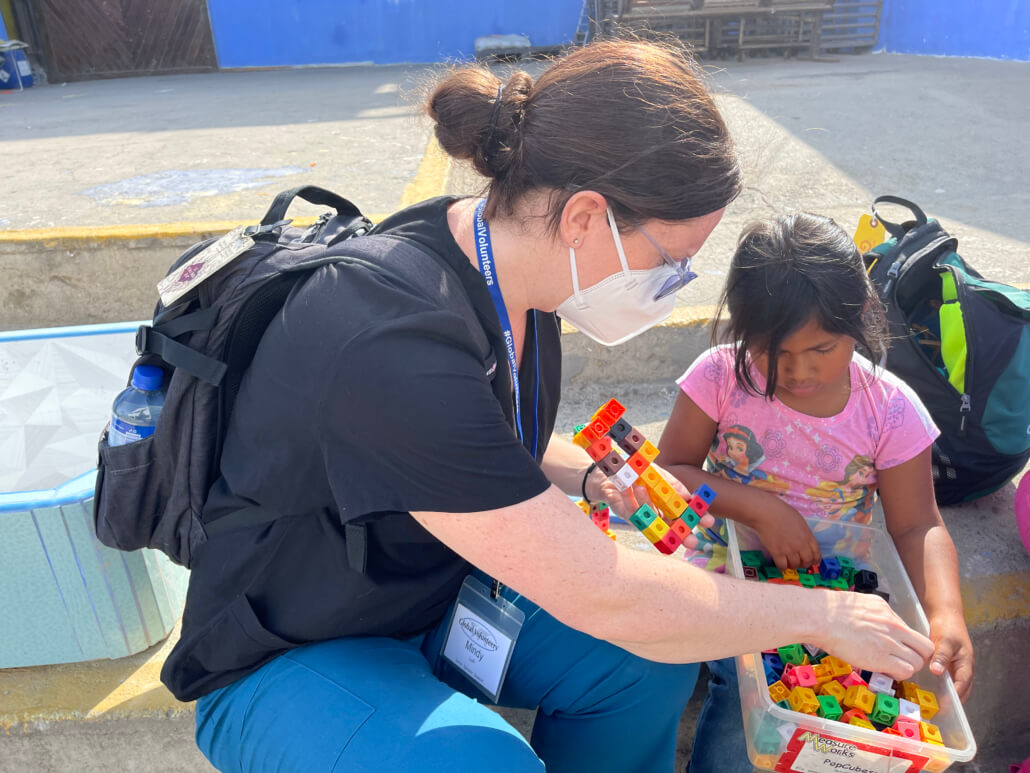
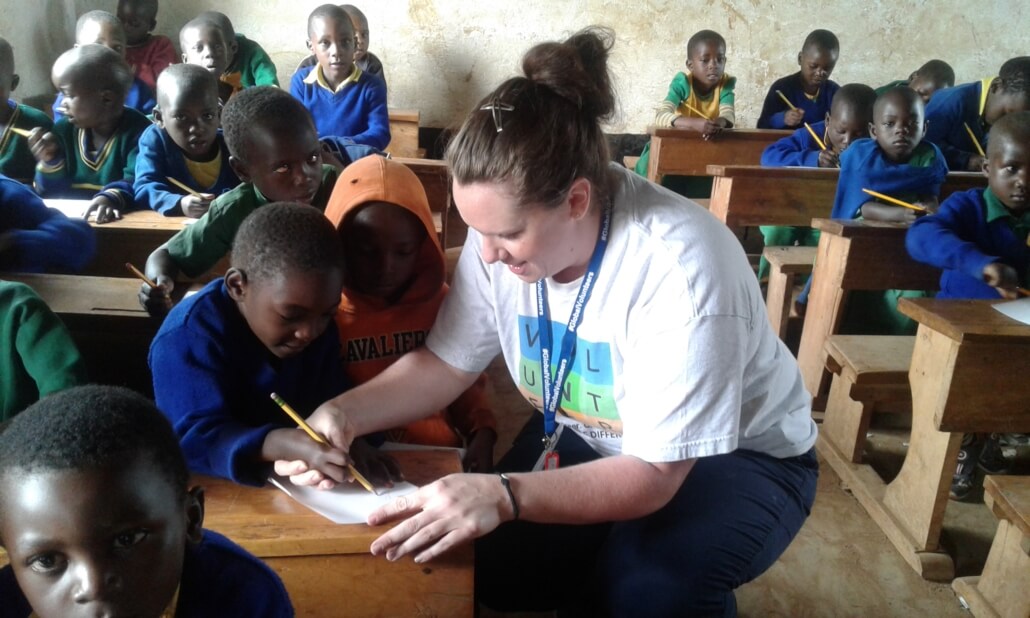
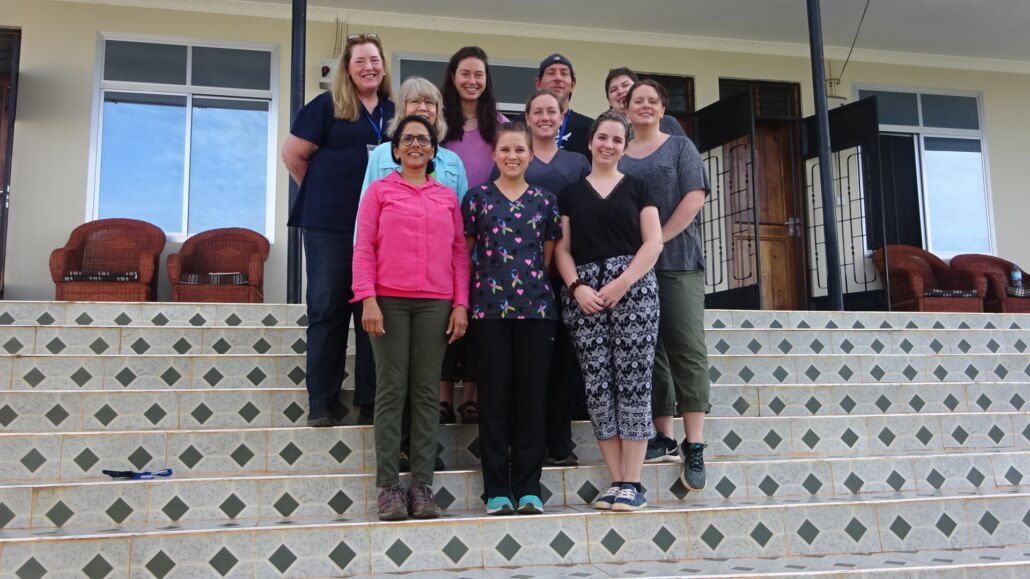
To learn about the RCP Program and families in the Ukwega Ward, choose from the program blog archive here.

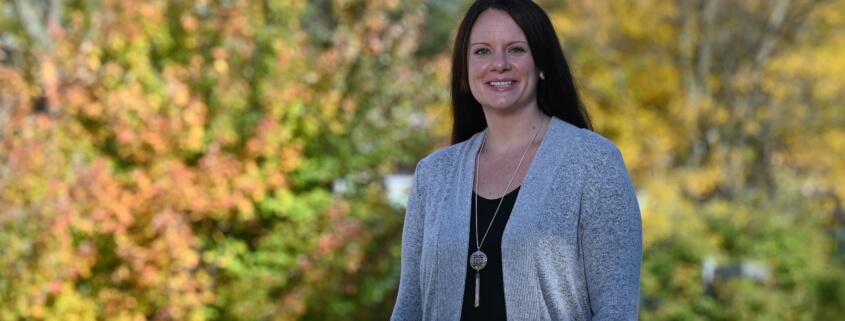


Leave a Reply
Want to join the discussion?Feel free to contribute!